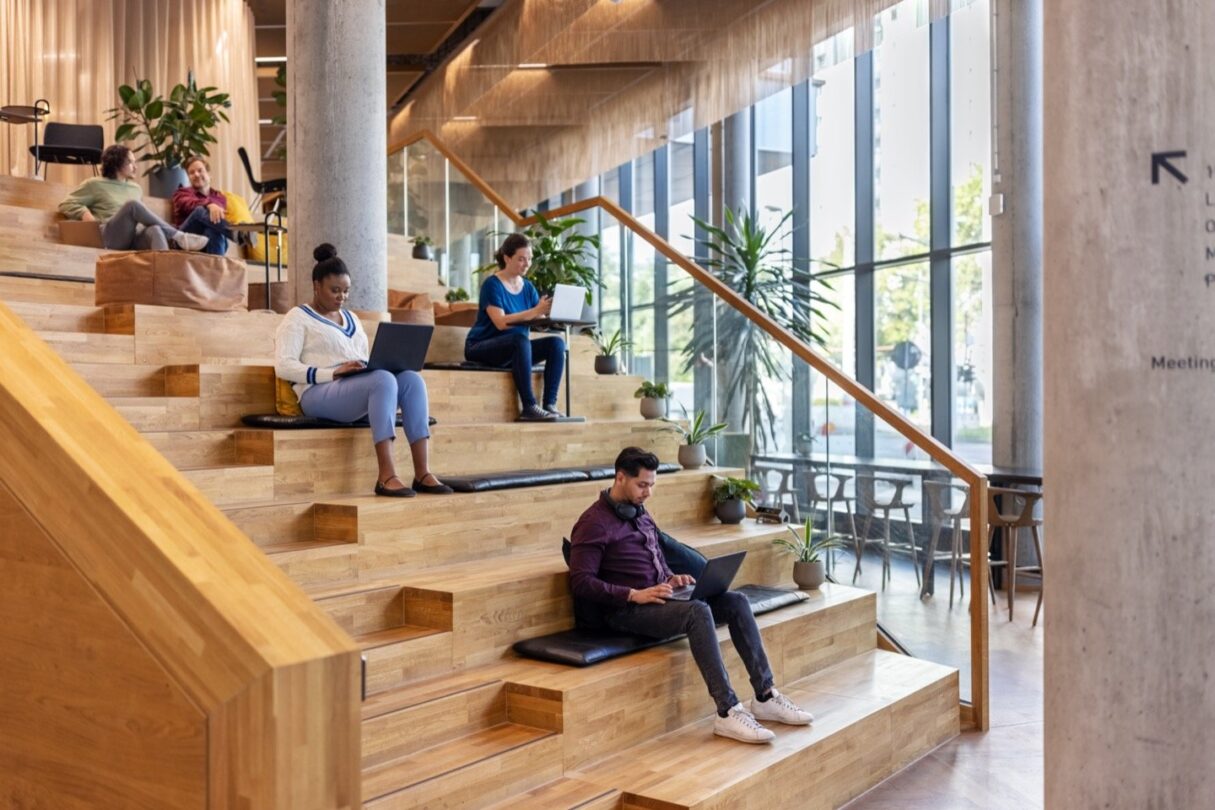Diversity, Equity, Inclusion: Less talk. More action.
South Africa is a hub of diversity. We have different cultures, races, and languages that make our workforce almost unstoppable – or so it should. What’s often missing is the right approach to managing diversity in business. That’s where equity and inclusion come in. Diversity, equity, and inclusion (DEI) are the key ingredients to creating […]

South Africa is a hub of diversity. We have different cultures, races, and languages that make our workforce almost unstoppable – or so it should. What’s often missing is the right approach to managing diversity in business.
That’s where equity and inclusion come in.
Diversity, equity, and inclusion (DEI) are the key ingredients to creating a fair and prosperous working environment. Without it, your company culture might as well be non-existent.
But what is DEI, and why is it so important?
In this article, we explore what DEI means, why it’s important, and the current state of DEI in South African businesses.
The difference between diversity, equity, and inclusion
Diversity
Diversity is all the characteristics that make us unique. It includes race, ethnicity, sexual orientation, socioeconomic status, gender, religion, language, age, etc. It’s what differentiates you from the person across the room.
South Africa is the perfect example of diversity. It has been dubbed the “rainbow nation” because of its many different cultures, languages, and religions. We’re all different in our own right, making equity and inclusion all the more critical.
Equity
Equity stems from the word “equal” and relates to the fair treatment, access, opportunities, and advancement of everyone. In business, it goes a bit deeper than merely giving everyone the same treatment.
Equity is often confused with equality, but they are not the same thing. Equality means providing the same support and opportunities, regardless of people’s skills, needs, or abilities.
South Africa’s Employment Equity Act aims to ensure that everyone enjoys equal opportunity and fair treatment in the workplace. It protects employers from discrimination by their employer and ensures that all employees are treated fairly.
Equity, on the other hand, means tailoring support based on people’s abilities and needs. With equity, a company recognises that each employee has varying access to resources and privileges and that those with less access may need more help to make the most of opportunities in the company.
Inclusion
Inclusion is when people feel safe in an environment that feels unfamiliar at first – like walking into the home of someone from a different culture and instantly feeling welcome.
In the workplace, an inclusive culture is one where people feel safe speaking up, speaking out, and offering different perspectives on things – without fear of judgement or discrimination.
More specifically, inclusion is where business leaders remove barriers, discrimination, and intolerances, and encourage the diverse workforce to engage, contribute, and participate in the workplace.
Think of it this way
You have three employees, all from different backgrounds, cultures, and languages (diversity) working in the same accounting office.
When a promotion opportunity comes up, you can’t choose a candidate based on their diversity but rather on their performance and suitability for the new role. All three are good at their respective positions and should be given a fair opportunity to apply for the new role, regardless of their abilities and capabilities (equity).
However, you also need to be mindful that other people in the business, some of whom might be in a different department – like Kabelo in marketing who is also a finance whizz – might also like a shot at something new. So, you advertise the new position and invite anyone in the company to apply (inclusion).
Don’t just comply, add value
According to CHRO South Africa, DEI in the workplace has evolved beyond the traditional ways we’re more or less familiar with – there are layers. And without addressing these layers, businesses will lose talent.
The effects of DEI on business success and performance
According to Deloitte, organisations with a DEI workplace are:
- 6x more likely to be innovative
- 6x more likely to anticipate change
- 2x as likely to meet or exceed financial targets
Why create a DEI workplace?
- 51% of businesses say DEI enhances employee engagement
- 44% say it increases innovation and agility
- 33% say it increases customer service
- 29% say it improves their ability to acquire talent
- 27% say it increases organisational capability
Where is South Africa in all of this?
Although the economy, businesses, and society have made significant progress on DEI, we still have work to do.
COVID-19 has shone a light on the importance of DEI in the workplace – especially in hybrid working environments. Mail & Guardian stresses that simply making policies and establishing codes of conduct is not nearly enough to influence positive DEI.
According to Robert Walters, five barriers still stunt DEI in South Africa’s workforce:
- The tendency to hire according to personal preference and likeminded views,
- Promoting employees subjectively rather than equitably,
- Talking about the importance of DEI but not taking action to implement it,
- A lack of diverse C-level executives and managers, and
- A misunderstanding about the benefits of DEI.
Focusing more on equity
The best part of South Africa’s diversity is that we have an arsenal of different skill sets, ideas, and perspectives to draw from. But it’s not enough to be diverse; we need to allocate the right people to the right roles, give them equal opportunities, and reward their success.
No, we aren’t all the same, and we never will be, but that’s the point of diversity. We need to understand and upskill people according to their natural capabilities and performance.
The point is, we already know South Africa is diverse, making it almost impossible not to have a diverse workforce. So, it’s time to move away from merely incorporating diversity and focusing on equity.
This way, business owners are more likely to place people into positions that benefit the bottom line and drive employees’ need for growth and development.
How to put equity into action
-
Prioritise equal pay
Yes, it’s cliché, but that’s because it’s not being fully prioritised yet. So, how do you prioritise equal pay? By determining wages according to employee performance, position, and industry rates, regardless of diversity. Be transparent with salaries, determine them reasonably, and beware of bias creeping into the equation.
-
Promote equitable opportunities
Give your employees the support and resources they need to advance their careers. When a promotion comes up, ignore candidates’ demographic profiles and only look at their performance and value to the company.
-
Upskill whenever you can
Many employees have the potential to advance, but not the means. When you invest in the education and training of your workforce, you not only empower them intellectually but also allow them to get the opportunities they deserve.
-
Skills versus education
Unfortunately, South Africa has a significant education gap, leaving many people unemployed. Instead of merely focusing on candidates with formal education, focus on skills and previous work experience. You can also upskill existing employees who don’t have degrees and empower them to achieve academic success.
-
Inclusive incentives
The moment you implement financial or recognition-based incentives, your employees are much more likely to perform and reach company goals. When you reward employees, make sure the incentive structure is fair and equal and takes individual preferences and circumstances into account.





